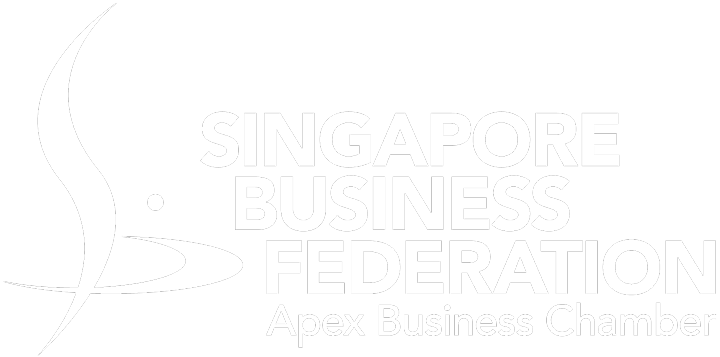Join us at the Singapore Apex Business Summit 2024, the premier business platform and be part of the conversation.
Future Economy Conference (FEC)
in conjunction with Company of Good Conference (COGC)
Theme: End of Business-As-Usual: Smart Technology and the Future of Work
SABS® Opening will take place on Day 1
| Time | Programme |
| 0800 | Registration |
| 0900 | Welcome Address Mr Lim Ming Yan Chairman Singapore Business Federation |
| 0910 | Opening Speech by Guest of Honour Mr Heng Swee Keat Deputy Prime Minister Singapore |
| 0930 | Launching Ceremony |
| 0935 | Keynote Address Business, Purpose and Technology Shaping the Future Economy |
| 0950 | Business Networking and Tea Break |
| 1015 | Panel Discussion 1 Smart Technologies: The New Work Revolution |
| 1115 | Panel Discussion 2 Net-Zero Nexus as the New Green Normal |
| 1215 | Business Networking and Luncheon |
| 1330 | Panel Discussion 3 The New Culture of Future Workplaces |
| 1430 | Breakout Sessions |
| 1530 | Business Networking and Tea Break |
| 1600 | Breakout Sessions |
| 1700 | End of FEC & COGC Programme Networking and Pre-Reception Cocktail |
SABS® Official Networking Night
| Time | Programme |
| 1800 | Registration |
| 1900 | Welcome Remarks Mr Lim Ming Yan Chairman Singapore Business Federation |
| 1930 | Fireside Chat with Special Guest Speaker Moderator: |
| 2030 | Performance and Networking |
| 2100 | End of SABS® Official Networking Night |
Singapore Regional Business Forum (SRBF®)
Theme: End of Business-As-Usual: Transforming Regional Collaborations towards a Sustainable Future
| Time | Programme |
| 0800 | Registration |
| 0900 | Welcome Address Mr S.S. Teo Chairman Internationalisation Action Committee Singapore Business Federation |
| 0910 | Opening Speech by Guest-of-Honour Mr Teo Chee Hean Senior Minister and Coordinating Minister for National Security Singapore |
| 0930 | MOU Signing and Launching Ceremony |
| 0940 | Keynote Speech Transforming Regional Collaborations Towards a Sustainable Future Mr Dilhan Pillay Sandrasegara Executive Director & CEO Temasek Holdings |
| 1000 | Panel Discussion 1 The global business landscape has undergone a paradigm transformation in recent years, characterised by the clash between economic titans and the end of globalisation as we know. This panel discussion delves into the intricate complexities of this unprecedented shift, with a proliferation of new ways of doing business and the emergence of a new economic order. Against the backdrop of geopolitical uncertainties and technological advancements, businesses operating in Singapore and beyond must navigate through a landscape marked by intense competition, trade conflicts, and evolving consumer behaviors. Understanding the drivers, risks, and opportunities inherent in this new era is essential for C-suite executives and business leaders as they chart the course for businesses in an increasingly interconnected and dynamic global marketplace. Panellists Mr Peter Mumford, Practice Head, Southeast Asia, Eurasia Group |
| 1100 | Business Networking and Tea break |
| 1130 | Panel Discussion 2 The Asia Pacific region consumes more than 40% of the world’s power and generates more than half of global greenhouse gas emissions. With fossil fuel contributing to 85% of the current energy mix in the region, transitioning to a sustainable energy future will be a key challenge in Asia’s path towards net zero. Across the region, there is a crucial need to close the gap in universal electricity access, energy efficiency and renewable energy adoption, while ensuring that energy is accessible and affordable to support economic development and business growth, as well as to serve marginalised communities. This panel will delve into the multifaceted challenges and promising opportunities for collaboration in realising the region’s Net Zero pathway, focusing on the necessity of blended financing mechanisms, fostering public-private partnerships, and driving innovation to accelerate the transition towards sustainable energy. |
| 1230 | Business Networking and Luncheon |
| 1400 | Panel Discussion 3 From Business-as-Usual to Transformation-as-Usual |
| 1515 | Panel Discussion 4 Carbon Tax and Decarbonisation Tools |
| 1630 | Business Networking and end of SRBF® Programme |
Future of Trade Forum (FOTF)
Theme: End of Business-As-Usual: Global Trade in Transition
| Time | Programme |
0900 | Welcome Address Mr Gan Seow Kee Vice Chairman Singapore Business Federation |
| 0910 | Opening Speech by Guest of Honour Mr Gan Kim Yong Minister for Trade & Industry |
| 0925 | Keynote Address Mr John Denton ICC Secretary General |
| 0940 | Business Networking and Tea Break |
| 1000 | Panel Discussion 1 Global trade has been the focal point of intensifying economic and geopolitical competition, with countries vying for investment, technology, commodities, and critical minerals.This panel discusses how the future of global trade governance can shape trading patterns and create both challenges and opportunities for businesses as regulatory development shifts away from the multilateral World Trade Organisation into bilateral, regional, and sectoral forums. Panellists will exchange views on how major trade agreements such as the CPTPP, RCEP, and IPEF, and regional blocs such as APEC, G20, OECD, and the TTC will play an increasingly important role in shaping the new global economic order. The panel will wrap up with how businesses can leverage ASEAN’s growing economic influence and connectivity amidst rising protectionism and reglobalisation trends. Panellists Ms Jane Lim, Deputy Secretary (Trade), Ministry of Trade and Industry |
| 1110 | Panel Discussion 2 Governments, consumers, corporations, and investors globally place increasing importance on sustainability, providing strong incentives for businesses to adopt sustainable processes in order to adapt to regulatory developments, market demands, impact investing, and sustainable financing. This panel discussion will explore the future trajectory of environment regulations and the use of trade tools as a means of achieving extra-territorial environmental outcomes. Panellists will cover challenges businesses face in complying with disparate environmental regulations across markets and the role of international standards. It will also explore the opportunities arising from public-private partnerships, green economy frameworks, and regional cooperation, such as on carbon markets and renewable energy. Panellists Mr Chris Humprey, Executive Director, EU-ASEAN Business Council |
1220 | Business Networking and Luncheon |
| 1430 | Breakout Session 1 Digitalising trade processes and documents can enable businesses to improve cost, manpower, and operational efficiencies while improving sustainability. The adoption of digital solutions using interoperable standards and secure technologies allows businesses to automate and streamline workflows, improve transparency and traceability of documentation, and reduce the cost of manual processing. Industry experts for this breakout session will guide participants through how to start the process of incorporating paperless trade into existing processes and systems, drawing insights from real-world examples and best practices in digital trade implementation across industries and regions. Breakout Session 2 In today’s interconnected world, unforeseen events like natural disasters, pandemics, and regulatory barriers can disrupt supply chains, impacting businesses worldwide. Our expert panel will delve into strategies for measuring and enhancing supply chain resilience to ensure business continuity, protect customer relationships, and sustain financial performance during crises. Additionally, we’ll explore the complexities of export control regulations as businesses expand globally, discussing key compliance measures, internal frameworks, and the role of technology in navigating these regulatory landscapes. This breakout session will allow attendees to gain valuable insights and actionable strategies from industry leaders to safeguard your business operations and stay competitive in the global marketplace. |
| 1600 | Business Networking and end of FOTF Programme |
*Programme is subjected to change.
If you have further enquiries, feel free to write in to info@

Navigation
Organised by

Co-organised by

Held in

